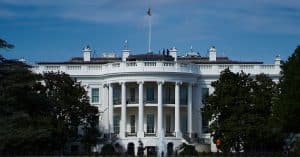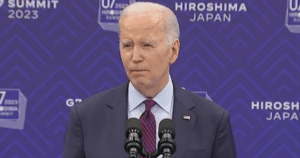Zuckerberg Reveals Biden Administration's Pandemic Censorship Pressure Campaign
Meta CEO Mark Zuckerberg recently disclosed during an interview with Joe Rogan that his company faced considerable pressure from the Biden administration to suppress information about the side effects of COVID-19 vaccines.
In response to what he said was ongoing governmental coercion from the outgoing Biden administration, Meta is now ending its controversial fact-checking practices to encourage freedom of speech on its platforms, as Fox News reports.
During the conversation, Zuckerberg detailed the predicament his company encountered due to the pressure placed on them by government officials. He explained how the administration demanded the removal of any content acknowledging the possible side effects of COVID-19 vaccines. Despite this, Zuckerberg firmly refused, maintaining that such content shouldn't be censored if it aligned with the truth.
Meta Balances Free Expression And Pressure
The Meta CEO elucidated the intense push from the Biden administration to control social media narratives related to public health. According to Zuckerberg, there was an explicit expectation from government members to eliminate any discourse suggesting vaccines might have adverse effects. He resisted these demands, emphasizing the importance of factual information remaining accessible to the public.
Responding to questions from Rogan, Zuckerberg identified individuals within the Biden administration as the source of these pressures. This situation led to heightened scrutiny and numerous investigations into Meta by various government branches.
Congressional Investigations And Public Accusations
The controversy intensified when President Joe Biden publicly criticized social media companies like Meta, accusing them of endangering lives. This accusation prompted a swift escalation of governmental investigations targeting Meta, which Zuckerberg described as particularly challenging for the company.
Zuckerberg humorously acknowledged the question of accountability, noting that although the Biden administration initially appeared aggressive, there seemed to be minimal lasting repercussions following the investigations. Rogan, inquiring about potential consequences, received a light-hearted mention of the election loss as a form of accountability.
First Amendment Violations And Freedom Concerns
The Meta CEO expressed significant concerns over what he saw as a breach of the First Amendment. Zuckerberg argued that governmental actions aiming to influence company policies regarding content censorship were potentially illegal. He highlighted that the First Amendment was intended to prevent government censorship through any means, including indirectly via social media platforms.
In a candid moment, Zuckerberg emphasized that his company would not comply with demands to remove truthful information, stating it would be "ridiculous" to do so. This steadfast position reflects Meta's broader strategy to ensure open communication on its platforms despite external pressures.
Reactions and Implications for Social Media
Zuckerberg's revelations shed light on the complicated relationship between social media enterprises and governmental bodies. By choosing to discontinue certain fact-checking measures, Meta is positioning itself as a champion of free speech, countering governmental narratives that pressure compliance.
This shift could have far-reaching implications for how information is managed and shared across social media networks. It also raises essential questions concerning the balance between addressing public health crises and upholding open discourse.
Zuckerberg's Determination Despite Challenges
Despite the apparent challenges encountered, Zuckerberg remains resolute in his commitment to maintaining a platform for free expression. His response to governmental pressure highlights an ongoing struggle that Meta, along with other social media companies, faces in navigating complex regulatory environments while remaining true to foundational principles of free speech.
Critics of government intervention may find validation in Zuckerberg's account, whereas advocates for stricter content policies may see his stance as a roadblock to responsible information dissemination. Either way, the discourse surrounding this issue underscores the tension between social media giants and governmental authority.
Digital Platforms As Modern Information Gatekeepers
Zuckerberg's announcement illustrates the evolving role of digital platforms as gatekeepers of information. The decision to stop engaging in aggressive fact-checking marks a pivotal moment in how these companies balance user-generated content and regulatory demands.
The broader implications of this move could signal a shift in how companies like Meta respond to government directives, particularly in sensitive areas such as health-related information. As these platforms adapt, the specter of governmental influence will likely continue to loom large.




